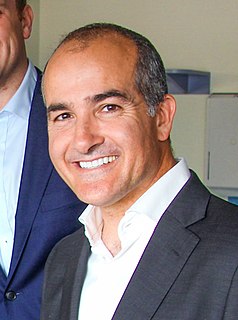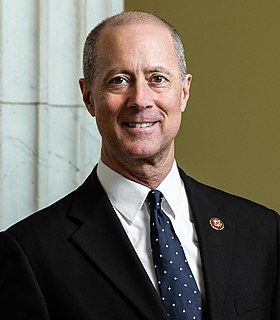A Quote by Chester Barnard
The responsibility of the executive is (1) to create and maintain a sense of purpose and moral code for the organization; (2) to establish systems of formal and informal communication; and (3) to ensure the willingness of people to cooperate.
Related Quotes
I have participated as a leader in many organizations where the leadership culture was just mean - ugly, where competitiveness, and destructive relationships stymied progress. There should be healthy tension and candid debate, but leadership teams need to practice communication, relationship building, emotional intelligence, and be aligned around common purpose to achieve organizational success. Senior leaders, chief executive officers, others need to ensure they are fostering the right environment for leadership otherwise all of that ugliness will trickle through the organization.
There's a definite sense this morning on the part of the Kerry voters that perhaps this is code, 'moral values,' is code for something else. It's code for taking a different position about gays in America, an exclusionary position, a code about abortion, code about imposing Christianity over other faiths.
To put it another way, I believe that purpose and principle, clearly understood and articulated, and commonly shared, are the genetic code of any healthy organization. To the degree that you hold purpose and principles in common among you, you can dispense with command and control. People will know how to behave in accordance with them, and they'll do it in thousands of unimaginable, creative ways. The organization will become a vital, living set of beliefs.
People assume that the executive branch has more power than it actually has. Only the legislative branch can create the laws; the executive branch cannot create the laws. So, if the executive branch tries to create a branch one side or the other... you go back to the founders of the nation. They set up a system that ensures that it doesn't happen.
If you create networks that allow people in their own local systems to have power and agency and sovereignty in their own systems. The idea that people could just know what's happening with their data. You could work with the platform, in communication with it, more than "I'm just like experiencing as a blind person in a black box".
The Constitution places the responsibility on Congress for setting the size of the U.S. military, ensuring sufficient resources are in place to train and equip it, and funding maintenance programs and replacing worn-out equipment. We have a moral responsibility to ensure that our people are fully prepared and fully supported.
Morality is neither rational nor absolute nor natural. World has known many moral systems, each of which advances claims universality; all moral systems are therefore particular, serving a specific purpose for their propagators or creators, and enforcing a certain regime that disciplines human beings for social life by narrowing our perspectives and limiting our horizons.
I went to a fundamentalist Christian high school and went to a fundamentalist church, and they were the greatest people; there was an amazing sense of community. The problem is when the messiness of real life enters, and the inflexibility of a moral code cannot cope with the realities of moral relativism.



































